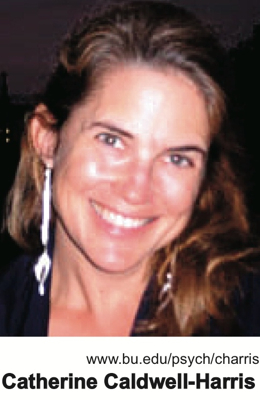Rascals case in brief
In the beginning, in 1989, more than 90 children at the Little Rascals Day Care Center in Edenton, North Carolina, accused a total of 20 adults with 429 instances of sexual abuse over a three-year period. It may have all begun with one parent’s complaint about punishment given her child.
Among the alleged perpetrators: the sheriff and mayor. But prosecutors would charge only Robin Byrum, Darlene Harris, Elizabeth “Betsy” Kelly, Robert “Bob” Kelly, Willard Scott Privott, Shelley Stone and Dawn Wilson – the Edenton 7.
Along with sodomy and beatings, allegations included a baby killed with a handgun, a child being hung upside down from a tree and being set on fire and countless other fantastic incidents involving spaceships, hot air balloons, pirate ships and trained sharks.
By the time prosecutors dropped the last charges in 1997, Little Rascals had become North Carolina’s longest and most costly criminal trial. Prosecutors kept defendants jailed in hopes at least one would turn against their supposed co-conspirators. Remarkably, none did. Another shameful record: Five defendants had to wait longer to face their accusers in court than anyone else in North Carolina history.
Between 1991 and 1997, Ofra Bikel produced three extraordinary episodes on the Little Rascals case for the PBS series “Frontline.” Although “Innocence Lost” did not deter prosecutors, it exposed their tactics and fostered nationwide skepticism and dismay.
With each passing year, the absurdity of the Little Rascals charges has become more obvious. But no admission of error has ever come from prosecutors, police, interviewers or parents. This site is devoted to the issues raised by this case.
On Facebook
Click for earlier Facebook posts archived on this site
Click to go to
Today’s random selection from the Little Rascals Day Care archives….
Click for earlier Facebook posts archived on this site
Click to go to
Today’s random selection from the Little Rascals Day Care archives….
‘Belief in a devil’ is essential to fanatics
Oct. 31, 2012
“Mass movements can rise and spread without a belief in God, but never without belief in a devil.”
– Eric Hoffer in his landmark analysis of fanaticism, “The True Believer” (1951)
Hoffer’s point was impressively made in the day-care mania. In no case I’ve found – in this country at least – did religion play a significant factor. To the contrary, several ministers and churches were on the receiving end of wrongful prosecution.
50 students now know the facts
 Oct. 28, 2013
Oct. 28, 2013
“What was surprising was that in a class of 50 students, none had heard of the day care allegations of the 1980s.”
– From a note from Catherine Caldwell-Harris, associate professor of psychology, Boston University
Well, that’s a bracing dose of reality, isn’t it? But thanks to Dr. Caldwell-Harris, those students in her developmental psychology class now have an understanding of the moral panic. Here’s her lesson plan, which she doesn’t mind being borrowed, along with her comments on how students responded.
Maybe the current generation of academics sees clearly what many of their predecessors so horribly misjudged?
‘Lack of rigor’ is nothing new in the social sciences
 Nov. 4, 2013
Nov. 4, 2013
“It’s not a great time for psychology. Diederik A. Stapel, a Dutch social psychologist, has recently confessed to serial fraud. That he gamed the peer review process of his field’s best journals so often and for so long calls into question the quality-control mechanisms of academic psychology. If garbage can pass peer review, as long as it is well-written and well-formatted garbage, then the authority conferred by appearing in peer-reviewed publications would seem to be slight….
“Most work in the psychological and social sciences suffers from a lack of conceptual rigor. It’s a bit sloppy around the edges, and in the middle, too…. It’s as if the precision of the statistical analysis is supposed somehow to compensate for, or help us forget, the imprecision of thought at the foundation of the enterprise.”
– From “Barbara Fredrickson’s Bestselling ‘Positivity’ Is Trashed by a New Study” by Will Wilkinson at the Daily Beast (Aug. 16, 2013)
The contemporary cases Wilkinson cites and the episodes of the day-care ritual-abuse era bear many dissimilarities. But they share all too closely the practitioners’ use of “the precision of the statistical analysis… to compensate for, or help us forget, the imprecision of thought at the foundation of the enterprise.”
‘Little Rascals case is a study of female/maternal vengeance’

opineseason.wordpress.com
Brian Lambert
Dec. 12, 2017
“Sadly, we’ve grown accustomed to gross miscarriages of justice in cases involving minorities and the indigent. Appalled as we are by such legal travesties we rationalize it as the consequences of traditional bigotry.
“But there is no racial component to the Little Rascals case. There isn’t even much of a class component, since the defendants and their accusers were for the most part, equals. With the exception of a couple jurors, all the characters are white and comfortably middle-class.
“Neither is there any effect of drug abuse or any other kind of aberrant psychology.
“If anything, the Little Rascals case is a study of female/maternal vengeance, since the Kellys’ foremost accusers were Betsy Kelly’s friends, the mothers of the children entrusted to her care. Likewise the vast majority of court-appointed therapists and counselors were female, as was the most prominent of the three prosecutors.
“The story is a riveting study of mass psychosis, of the willingness, ability and need of well- educated, civilized people to believe something in the face of a near total absence of logic and extraordinary cruelty to friends and neighbors….”
– From “A ‘Frontline’ documentary on child abuse hysteria shows how good TV can be” by Brian Lambert in the Saint Paul Pioneer Press (May 27, 1997)
![]()











0 CommentsComment on Facebook